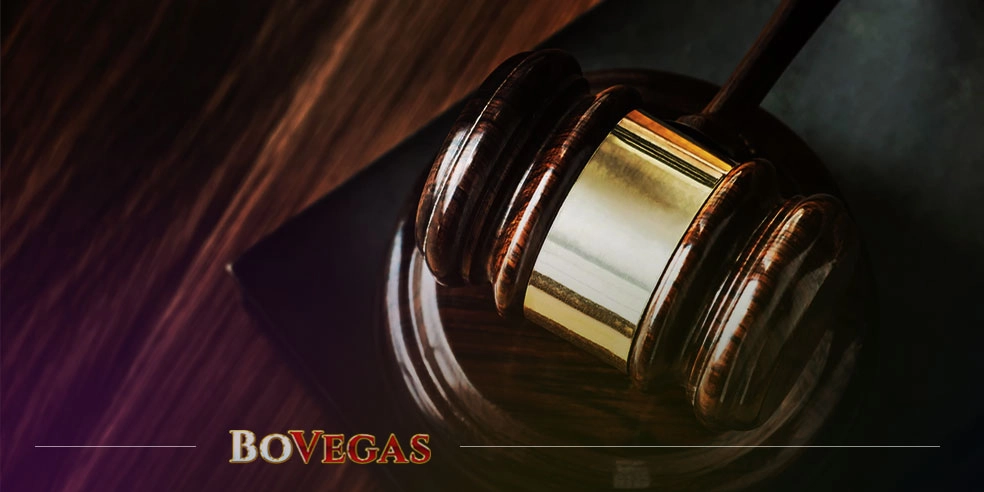



Playing at a casino has always been considered a pretty enjoyable process that can help bring you tons of money, and which brings many people a lot of pleasure as well. However, from time to time, the relationship between the gambler and the venue becomes a whole lot tougher. They say the house always wins, no matter what! But does this principle work in court as well? Are there any cases where a player has actually won a lawsuit against a casino?
Well, let’s find out by looking at 5 gambler vs. casino cases!
Spoiler — House wins
 The most famous gambling lawsuit revolves around the world’s top poker player Phil Ivey, who won over $26.2 million in live tournaments. The court case occurred when Crockfords Club refused to pay Ivey’s winnings. Phil Ivey played Punto Banco, a version of Baccarat, back in 2012 and won £7.8 million. After almost a year of Crockford refusing to pay, Ivey was forced to take court action.
The most famous gambling lawsuit revolves around the world’s top poker player Phil Ivey, who won over $26.2 million in live tournaments. The court case occurred when Crockfords Club refused to pay Ivey’s winnings. Phil Ivey played Punto Banco, a version of Baccarat, back in 2012 and won £7.8 million. After almost a year of Crockford refusing to pay, Ivey was forced to take court action.
The casino accuses Ivey of using the “edge-sorting” technique, which involves the examination of the pattern on the back of the cards. If used properly, this technique may indeed bring you big winnings.
While Ivey has admitted he used edge-sorting, he denies cheating. Nevertheless, Britain’s court has made a decision that is not in his favor, claiming this trick is considered to be fraud, and that Crockfords were perfectly within their rights to refuse to pay his winnings.
Spoiler — House wins
“The reels have rolled your way! Bonus Award — $41.797.550,16!” That’s what everyone wants to see while playing a slot machine, and that is what Pauline McKee, an 87-year-old grandmother, saw when she bet a quarter in an Isle Casino Hotel Waterloo, IA. However, the casino refused to pay the gain, explaining that the message appearing on the screen was only a machine glitch.
McKees refused to accept the situation as a casual occurrence and sought legal redress, claiming that any screen statement indicating the winnings must be paid, regardless of the casino’s failure. The Iowa Racing and Gaming Commission (IRGC) then sent the slot machine’s hardware and software to testing, which concluded the machine did indeed have an error bonus message.
In accordance with the IRGC and the casino rules, which clearly stated that the maximum award could not exceed $10,000, the court found in favor of the casino. Her actual win was only $1.85.
Spoiler — Player wins (partly)
A controversial case occurred in 2004, when Christian Hainz lost more than €2,5 million and accused two Swiss gambling venues of inaction. Since Hainz was a regular visitor of these casinos, and the staff were aware of the state he was in, he claimed the casino’s personnel should have stopped him from losing a significant amount. Hainz’s attorney claimed that “compulsive gambling is an illness,” and that the casino manipulated his client due to this.
Eventually, Hainz managed to win the court case; and although he could not claim full compensation, the Appeal Court ordered Swiss casinos to reimburse him to the tune of €499,729.
Spoiler — House wins, player jailed
 In 2008, Arelia Taveras, a gambling lawyer accused Las Vegas and Atlantic City casinos of contributing to her gambling addiction and ruining her career. She used to spend five days in a row with no food or sleep, and eventually gambled away her money and apartment. But not only this: she also stole money from her clients and ended up being $58,000 in debt.
In 2008, Arelia Taveras, a gambling lawyer accused Las Vegas and Atlantic City casinos of contributing to her gambling addiction and ruining her career. She used to spend five days in a row with no food or sleep, and eventually gambled away her money and apartment. But not only this: she also stole money from her clients and ended up being $58,000 in debt.
The former lawyer, who advocated for victims of the 9/11 terrorist attack, claimed a lawsuit for over $20 million against seven casinos (five of which were in Atlantic City). Her appeal was rejected, when the judge found that there were no casino rules stating it was their duty to stop compulsive gamblers.
As a result, Taveras has been sentenced for three to nine years in prison for taking $130,000 from her clients’ accounts, in order to support her gambling addiction.
Spoiler — Player arrested as he failed to appear in court
 A 52-year-old Californian businessman spent a weekend at the Downtown Grand Casino during a Super Bowl in 2014. On his way to having fun, Mark Johnston spent half of the day binge drinking. He then entered the casino, seemingly sober, and started a 17-hour gambling spree while continuing to drink the whole time. Johnston’s alcohol party went badly wrong when he lost over $500,000 at the casino tables!
A 52-year-old Californian businessman spent a weekend at the Downtown Grand Casino during a Super Bowl in 2014. On his way to having fun, Mark Johnston spent half of the day binge drinking. He then entered the casino, seemingly sober, and started a 17-hour gambling spree while continuing to drink the whole time. Johnston’s alcohol party went badly wrong when he lost over $500,000 at the casino tables!
After sobering up, the problem gambler refused to pay the casino for his losses, claiming he had been totally blacked out whilst playing. With this statement, he filed a lawsuit against the casino, stating the employees were encouraging him to drink and that they let him lose $500,000.
In spite of Nevada’s gaming laws, which clearly stated that players who are visibly drunk are not allowed to gamble, the casino claimed Johnston was sober and was able to play.
A year later, Nevada police issued a warrant for Mark Johnston’s arrest, after he skipped the preliminary hearing in court, while still owing the casino a considerable sum of money.
Although we haven’t mentioned even half of the relevant casino-related court cases here, you can still track the crucial idea behind all five stories. Whatever game you’re playing, either in a land-based or online casino, just remember to play responsibly. Gambling is one of the most amazing entertainment forms in the whole wide world! You just have to keep in mind these simple rules:
Enjoy your game! And enjoy gambling responsibly.
Top poker player Phil Ivey lost a lawsuit against Crockfords Club. He was fighting for five years to prove he did not cheat while playing Punto Banco in 2012. He won £7.8 million, but London’s casino refused to pay him the winnings.
Edge-sorting is an advantage technique, which involves spotting the difference in the cards’ pattern. If used properly, this technique may bring you a lot of luck, as the player will literally know what card will be dealt next. Edge-sorting is illegal to use while playing at casinos if you do not innocently observe the cards, but manipulate the dealer to get the best hand.
Las Vegas casinos provide its players with free drinks while they play. However, under Nevada laws, it is forbidden to gamble if you are visibly drunk. The same story for free drinks, the casino employees are not allowed to provide you with beverages if you are wasted.

Can you imagine dozens of players bagging million dollar jackpots in one day? Well, this is what you may just see at the World Series of Poker (WSOP) or any other major tournament. This year, WSOP is celebrating its 50th anniversary from May 28 to July 16, 2019. There are 89 bracelets to be awarded […]
Brick-and-mortar casinos put out all the stops to lure and entertain their loyal players. And sometimes, they invent games that are out of the ordinary — ones that can only be dubbed peculiar. Therefore, if you have had more than your fair share of the same slot machine or video poker game, then why not […]
Online gambling is a very relaxing form of entertainment; but at the same time, it’s extremely exciting as well! The sheer excitement you feel when taking risks and betting is really exhilarating, and it really can’t be compared with any other feeling. And when the screen finally goes bright and shiny, proudly announcing that you’ve […]
Not long ago, we looked at three questions you should ask yourself about your hand before you decide to bet on the river. Now we’re going to look at how you can get the most value out of your hand when you do decide to wager. Talking value better here, ladies and gentlemen! Once you […]
If you love gambling and have been to a land-based casino at least once, you may have thought about becoming a dealer. Playing the same game but from the opposite side, while communicating with other players, sounds like a dream job, right? A dealer is a straightforward job, and you will be the heart and […]
On Monday September 14, MGM announced that it plans to open its first smoke-free casino at the end of September, when Park MGM will finally reopen its venues to players and tourists. The resort comprises around 2,990 rooms and various restaurants, and it’s set to be reopened on September 30. The venue has been closed […]
Online gambling has undoubtedly taken a place of true supremacy over the casino industry during the pandemic. And the reason for that is quite clear: online casinos are more accessible, and you can always count on some encouragement from the casino administration to help you boost your game. However, this digital revolution has only been […]
The large selection of online gambling sites out there can make players somewhat puzzled, and give them a feeling of uncertainty about making the right choice of casino. Each online gambling venue offers its own conditions, games, and various bonuses, of course; but the most important thing is the reliability of the casino and the […]